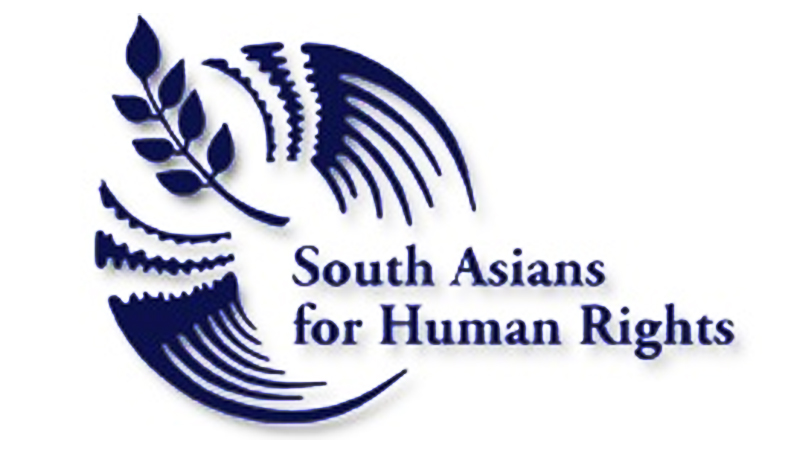AU Summit on the ICC – Protecting leaders in office to the detriment of victims and peace
FIDH – International Federation for Human Rights
Joint Press Release
(see list of signatories below)
AU Summit on the ICC – Protecting leaders in office to the detriment of victims and peace
Paris, Nairobi, 18 October 2013 – The African Union (AU) held an extraordinary summit meeting in Addis Ababa on 11 and 12 October, in response to proceedings initiated by the International Criminal Court (ICC) involving Sudanese and Kenyan Heads of State and one deputy-president. Despite the support for international justice expressed by Heads of State during the meeting or by their absence, the AU adopted a decision which undermines one of the pillars of its mandate : the fight against impunity for the most serious crimes. This officially recognizes impunity for political leaders in office and leaves victims by the wayside.
During this Summit, which addressed Africa’s relations with the ICC, the AU determined that Heads of State and government in office should not be indicted by the ICC, arguing that otherwise the “sovereignty, stability and peace [of member states] would be undermined”. Paradoxically, 34 African States are parties to the Rome Statute and, through ratification, have voluntarily committed to protecting equal treatment for individuals in cases involving criminal responsibility for international crimes.
“This decision has tarnished AU efforts towards justice on the continent and is a worrying step back as it could serve as a precedent or alibi for Heads of State from other regions. It violates the provisions of the AU’s Constitutive act, is counter to the interests and obligations of the States that have ratified the Rome Statute, jeopardizes the independence of the ICC, and violates international criminal law which does not allow for exemption from criminal responsibility for crimes against humanity, war crimes or genocide” , said Patrick Baudouin, FIDH Honorary President and Head of Legal Action Group. “The AU should have reminded its member States that none of the proceedings could have been initiated by the ICC had the relevant authorities demonstrated their willingness and ability to prosecute the most serious crimes committed in their countries” , added Mabassa Fall, FIDH Permanent Representative to the AU.
The AU decision called on the UN Security Council (UNSC) to suspend proceedings against the President and Deputy-President of Kenya, Uhuru Kenyatta and William Samoei Ruto, on the basis of article 16 of the Rome Statute. While the UNSC does not have the power to dismiss ICC proceedings, it can, however, in application of Chapter VII of the United Nations Charter, ask the ICC to stay investigations and proceedings underway, for a period of 12 months, when they constitute a threat to international peace and security. Clearly, it is the perpetration of international crimes and impunity of their authors that constitute the most serious threat to peace and security, and not the intervention of the ICC.
The AU announced the creation of a Contact Group of the Executive Council to be led by the current Chairperson of the Council and composed of five representatives of AU member States. This Contact Group will represent the AU in consultations with the five permanent members of the UNSC. In particular, the aim of the Contact Group will be to obtain the staying of investigations and proceedings involving the situation in Kenya.
“African countries had played a decisive role in the creation of the ICC and in the entry into force of the Rome Statue on 1 July 2002. Four African Heads of State have personally asked the ICC Prosecutor to open investigations into crimes which they were unable to prosecute themselves” , declared Karim Lahidji, FIDH President. “It is deplorable to see that these repeated attacks against ICC interventions made by certain Heads of State were only started when two of them were subject to prosecution. The protection of their own personal interests clearly supersedes any consideration for justice for the victims of these heinous crimes and seriously jeopardizes hopes for the consolidation of peace on the continent” , he added.
Immunity and Heads of State
FIDH points out that article 27 of the Rome Statute reads, “This Statute shall apply equally to all persons without any distinction based on official capacity. In particular, official capacity as a Head of State or Government, a member of Government or parliament, an elected representative or a government official shall in no case exempt a person from criminal responsibility under this Statute, nor shall it, in and of itself, constitute a ground for reduction of sentence”. This article was approved by 34 out of the 54 members of the AU who ratified the Rome Statute. It should be noted that Kenya’s constitution in particular, under article 143(4) prohibits immunity of the President from extending to a crime for which the President may be prosecuted under any treaty to which Kenya is party and which prohibits such immunity.
Since the beginning of the 20th century certain crimes have been deemed serious enough to merit international action. Actions undertaken by an international judicial institution are not, therefore, counter to national sovereignty, especially when States have recognized its jurisdiction. When atrocities are committed and the national judiciary is lacking, an international legal reaction is fundamental to the protection of victims’ rights and the consolidation of peace.
The African Commission for Human and Peoples’ Rights has recognized that the interpretation of immunity to foreigners, including Heads of State, must be done in as limited a manner as possible. According to international law, Heads of State have immunity from prosecution before foreign courts; this allows them to perform their governance duties without hindrance. Notwithstanding, their duties do not include the alleged perpetration of international crimes. The International Court of Justice has established that immunity is not recognized by international criminal jurisdictions. Since 1945 and the Nuremberg Trial which prosecuted Nazi leaders, immunity for Heads of State cannot be used to absolve criminal responsibility. The International Criminal Tribunal for the former Yugoslavia and the International Criminal Tribunal for Rwanda have also upheld this principle, as have the Special Court for Sierra Leone and the Extraordinary Chambers in the Courts of Senegal which earlier this year initiated proceedings against the former Head of Chad, Hissène Habré, on the basis of an AU decision and “on behalf of Africa”.
Read the reaction of Desmond Tutu, Peace Nobel Price, in the New York Times.
“This decision has tarnished AU efforts towards justice on the continent and is a worrying step back as it could serve as a precedent or alibi for Heads of State from other regions. It violates the provisions of the AU’s Constitutive act, is counter to the interests and obligations of the States that have ratified the Rome Statute, jeopardizes the independence of the ICC, and violates international criminal law which does not allow for exemption from criminal responsibility for crimes against humanity, war crimes or genocide” , said Patrick Baudouin, FIDH Honorary President and Head of Legal Action Group. “The AU should have reminded its member States that none of the proceedings could have been initiated by the ICC had the relevant authorities demonstrated their willingness and ability to prosecute the most serious crimes committed in their countries” , added Mabassa Fall, FIDH Permanent Representative to the AU.
The AU decision called on the UN Security Council (UNSC) to suspend proceedings against the President and Deputy-President of Kenya, Uhuru Kenyatta and William Samoei Ruto, on the basis of article 16 of the Rome Statute. While the UNSC does not have the power to dismiss ICC proceedings, it can, however, in application of Chapter VII of the United Nations Charter, ask the ICC to stay investigations and proceedings underway, for a period of 12 months, when they constitute a threat to international peace and security. Clearly, it is the perpetration of international crimes and impunity of their authors that constitute the most serious threat to peace and security, and not the intervention of the ICC.
The AU announced the creation of a Contact Group of the Executive Council to be led by the current Chairperson of the Council and composed of five representatives of AU member States. This Contact Group will represent the AU in consultations with the five permanent members of the UNSC. In particular, the aim of the Contact Group will be to obtain the staying of investigations and proceedings involving the situation in Kenya.
“African countries had played a decisive role in the creation of the ICC and in the entry into force of the Rome Statue on 1 July 2002. Four African Heads of State have personally asked the ICC Prosecutor to open investigations into crimes which they were unable to prosecute themselves” , declared Karim Lahidji, FIDH President. “It is deplorable to see that these repeated attacks against ICC interventions made by certain Heads of State were only started when two of them were subject to prosecution. The protection of their own personal interests clearly supersedes any consideration for justice for the victims of these heinous crimes and seriously jeopardizes hopes for the consolidation of peace on the continent” , he added.
Immunity and Heads of State
FIDH points out that article 27 of the Rome Statute reads, “This Statute shall apply equally to all persons without any distinction based on official capacity. In particular, official capacity as a Head of State or Government, a member of Government or parliament, an elected representative or a government official shall in no case exempt a person from criminal responsibility under this Statute, nor shall it, in and of itself, constitute a ground for reduction of sentence”. This article was approved by 34 out of the 54 members of the AU who ratified the Rome Statute. It should be noted that Kenya’s constitution in particular, under article 143(4) prohibits immunity of the President from extending to a crime for which the President may be prosecuted under any treaty to which Kenya is party and which prohibits such immunity.
Since the beginning of the 20th century certain crimes have been deemed serious enough to merit international action. Actions undertaken by an international judicial institution are not, therefore, counter to national sovereignty, especially when States have recognized its jurisdiction. When atrocities are committed and the national judiciary is lacking, an international legal reaction is fundamental to the protection of victims’ rights and the consolidation of peace.
The African Commission for Human and Peoples’ Rights has recognized that the interpretation of immunity to foreigners, including Heads of State, must be done in as limited a manner as possible. According to international law, Heads of State have immunity from prosecution before foreign courts; this allows them to perform their governance duties without hindrance. Notwithstanding, their duties do not include the alleged perpetration of international crimes. The International Court of Justice has established that immunity is not recognized by international criminal jurisdictions. Since 1945 and the Nuremberg Trial which prosecuted Nazi leaders, immunity for Heads of State cannot be used to absolve criminal responsibility. The International Criminal Tribunal for the former Yugoslavia and the International Criminal Tribunal for Rwanda have also upheld this principle, as have the Special Court for Sierra Leone and the Extraordinary Chambers in the Courts of Senegal which earlier this year initiated proceedings against the former Head of Chad, Hissène Habré, on the basis of an AU decision and “on behalf of Africa”.
Read the reaction of Desmond Tutu, Peace Nobel Price, in the New York Times.
Press contacts: presse@fidh.org
Arthur Manet (French, English, Spanish) – Tel: +33 6 72 28 42 94 (in Paris)
Audrey Couprie (French, English, Spanish) – Tel: +33 6 48 05 91 57 (in Paris)
Category: Media Monitoring






